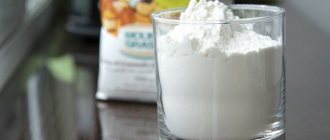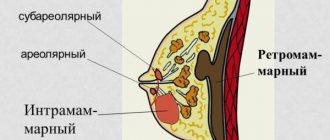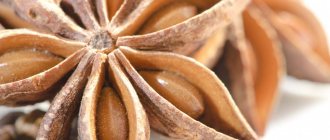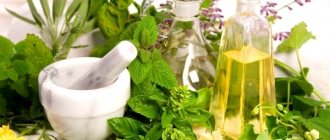Inflammation of the intestinal mucosa is a condition that requires close attention and a responsible approach. Treatment of colitis in adults with folk remedies goes hand in hand with an officially developed drug therapy plan. Intestinal colitis in an adult arises from many causes and circumstances, which can only be overcome through the joint efforts of the doctor and the patient. Folk remedies for colitis complement pharmacological therapy, bringing the long-awaited recovery closer.
Antimicrobial agents
Intestinal colitis in an adult is accompanied by bacterial contamination of the organ mucosa. Natural antiseptics can combat the causes of microbial damage. The advantages of traditional methods of treating colitis are a minimum of contraindications and side effects, a known therapeutic effect.
Garlic
People with colitis should not eat fresh garlic, but its tincture is harmful to viruses and microbes.
To make a natural antiseptic you will need:
- 10 cloves of garlic;
- 50 ml vodka.
Grind the teeth, pour vodka, leave for 10 days in a glass container with a lid in a dark place. Strain the garlic extract, take 10 drops per third glass of milk an hour after meals. Indicated for chronic colitis, beyond the acute stage, to suppress putrefactive and fermentative microflora.
Cranberry
Cranberries will cure colitis at home if used correctly. Finnish scientists have announced the activity of cranberries against E. coli, Helicobacter Pilori, bacteria that have managed to acquire resistance to traditional medicine.
An infusion is made from cranberries - mash 100 g of berries with a wooden pestle, add 1000 ml of water. Drink a glass 3-4 times a day.
Honey
Honey for colitis is an excellent natural antiseptic against E. coli, dysentery, hay bacilli and some worms. Contraindications to honey exist for allergy sufferers and diabetics. In women, honey for colitis is consumed during pregnancy and lactation. In case of exacerbation of the disease, a teaspoon of honey is dissolved in a cup of warm milk (t = 33 -35 ° C) and taken 4 times a day an hour before meals. It is necessary to take into account the high calorie content of honey when planning your diet.
Types of colitis
Effective treatment for intestinal colitis in adults depends on the form of the disease and the individual characteristics of the body. The conditional classification of the disease according to the characteristics of the pathological process is represented by the following types:
- Spicy . Triggered by an allergic reaction, poor nutrition, bacterial infection. Under the influence of pathogenic factors, inflammation of the mucous membrane of the large and small intestines and stomach occurs.
- Chronic . The disease is caused by long-term use of laxatives, disruption of intestinal microflora and pathogenic microorganisms. Inflammation of the gastrointestinal tract occurs with recurrent attacks of pain.
A classification according to endoscopic characteristics is provided. The types of colitis are:
- Pseudomembranous . Long-term treatment with antibiotics disrupts the intestinal microflora and creates favorable conditions for the activity of harmful bacteria. Colitis manifests itself with pronounced symptoms of dysbacteriosis (diarrhea, flatulence, bloating).
- Ulcerative . Provoking factors are considered to be stress, poor nutrition, infections, and genetic diseases. This form of the disease is accompanied by purulent inflammation of the large intestine and is severe.
- Atrophic . The body becomes intoxicated with poisons, salts of heavy metals, toxins, and chemical reagents. With this disease, partial atrophy of the colon is observed, when the walls of the organ gradually become thinner.
- Spastic . The main causes of the disease are bad habits, unhealthy diet, and unhealthy lifestyle. Patients with this form of colitis complain of irritable bowel syndrome (abdominal pain and cramps, diarrhea, flatulence).
- Catarrhal . Pathogenic factors include food poisoning, intestinal diseases, vitamin deficiency, and weakened local immunity.
Anti-inflammatory recipes
Treatment of intestinal colitis with folk remedies involves the preparation of anti-inflammatory drugs. It is possible to calm the irritated surface of the large intestine by taking decoctions and infusions of herbs internally, microenemas with herbal infusions. It is acceptable to add a reasonable amount of spicy ingredients to food.
Turmeric
The exotic spice turmeric comes from India. Indian traditional medicine recommends treating intestinal colitis at home with turmeric. Contains an anti-inflammatory complex of biologically active substances.
A pinch of turmeric is added to low-fat chicken broth to activate digestion and improve appetite. It is not used in the acute phase of colitis.
Herbal decoctions
Chamomile for colitis is a generally recognized healer of inflammatory bowel processes. Even ulcerative colitis recedes from therapy with chamomile decoction. You need to drink it during exacerbation of the disease, removing signs of chronic intestinal disease. To prepare a decoction, brew two teaspoons of dried chamomile blossom with 400 ml of boiling water in a thermos. After half an hour, strain and drink half a glass before meals 4 times a day.
If inflammation of the large intestine is located mainly in the rectum (paraproctitis), microenemas with plant infusions are used. An infusion is prepared from medicinal herbs - calendula, sage, St. John's wort, nettle. Two tablespoons of dry raw materials are poured with half a liter of hot water (t=50-60°C) in an enamel bowl. Cover with a lid and simmer in a water bath for 30 minutes. Then cool, filter and pour into a syringe (400 ml). The enema is done at night, after using the toilet and hygiene.
Flax-seed
Flax seeds for colitis have a pronounced protective, soothing effect on the inner surface of the intestines. The enveloping, mucous infusion of flaxseed is indicated in folk medicine as the TOP 10 most effective remedies for colitis.
Brew two tablespoons of flaxseed in 400 ml of boiling water in a thermos in the evening. In the morning, strain, drink a glass 20 minutes before meals.
Symptoms and treatment of acute intestinal colitis
The inflammatory process that affects the mucous membrane of the large intestine is called colitis. Acute and chronic course of the process is differentiated. Acute colitis can be caused by pathogenic bacteria (escherichia coli, dysentery bacillus, streptococci, staphylococci), dietary disorders and foodborne toxic infections.
According to morphological changes, the acute form is divided into types:
- Catarrhal - the initial stage of inflammation of the mucous membrane, most often manifests itself during the ripening season of fruits and vegetables;
- Erosive - at this stage, small ulcers form on the intestinal mucosa, the first harbinger of the ulcerative form;
- Ulcerative is characterized by ulcers and bleeding; proceeds violently, recurs quite often;
- Fibrinous - characterized by the deposition of fibrin protein on the intestinal walls - the final product of blood clotting and the main component of the blood clot.
Despite the differences between the multiple acute forms, their symptoms are similar. This is an acute nagging or cramping pain in the lower abdomen, rumbling, loss of appetite, frequent loose stools mixed with blood and mucus.
During infectious processes, the temperature rises to 39-40o, signs of general intoxication appear:
- general weakness;
- headache;
- coated tongue;
- lack of appetite;
- confusion;
- with severe dehydration of the body - convulsions.
With proper treatment, acute pathology goes away within 1-2 weeks, sometimes becoming chronic. For severe diarrhea, especially with acute pain and high fever, bed rest is necessary.
Treatment should begin with a laxative, then use sulfa drugs - for example, sulgin, phthalazole.
Healing of the mucous membrane of the lower gastrointestinal tract
Treatment with folk remedies for colitis in ulcerative forms of the disease is aimed at regenerating the intestinal mucosa. Herbs for colitis heal intestinal tissues and restore the integrity of the mucous membrane. Healing therapy with folk remedies widely uses the regenerating properties of propolis and sea buckthorn.
Healing herbs
Treatment of chronic intestinal colitis, accompanied by ulcerations of the mucous membrane, is carried out with a herbal mixture:
- burdock root;
- chamomile color;
- Calendula officinalis flowers;
- herb St. John's wort;
- marshweed grass;
- Salvia officinalis herb.
Mix a teaspoon of dry herbal ingredients. Take three teaspoons of the mixture and pour 300 ml of boiling water. After leaving for half an hour, strain. Take a third of a glass before meals up to 4-5 times a day.
Sea buckthorn
Sea buckthorn is known as a powerful wound healing agent. It is used in the form of infusions, fresh diluted juice, and medicinal oil is made. Treatment of colitis at home with sea buckthorn is carried out in the absence of allergies to parts of the plant. Sort out fresh ripe berries, rinse and dry on a clean towel. Crush the sea buckthorn with a wooden or porcelain pestle and squeeze out the juice through cheesecloth. Dilute the juice by half with water, drink 50 ml an hour before meals, adding a teaspoon of honey per glass.
You can buy sea buckthorn oil for colitis or prepare it yourself. To do this, pour 200 g of crushed berries with a glass of sunflower oil in a glass container with a lid. Leave for two weeks, strain, store in a cool, dry place away from sunlight. Take sea buckthorn oil for colitis either orally, a tablespoon half an hour before meals, 2-3 times a day, or make microenemas with it. Injecting 200 ml of sea buckthorn oil into the rectum is an effective folk method for healing defects in its mucosa.
Propolis
Treatment of colitis with propolis has a long tradition. Propolis is a valuable beekeeping product. This is the glue that bees use to seal the cracks in the hive, and also mummify the corpses of animals (for example, mice) that accidentally entered the hive. Contains vitamins, minerals, amino acids, flavonoids, wax. Propolis for colitis stimulates mucosal regeneration, strengthens the immune system, improves blood circulation, and fights microbes. For medicinal purposes, a water infusion or alcohol tincture of propolis is prepared.
Alcohol tincture
For an alcohol tincture, freeze about a tablespoon of propolis (10 g), grate it on a fine grater and put it in cold water. Remove any floating debris and place the clean propolis on a sieve. Add half a glass of vodka to the dried propolis in dark glass bottles, seal tightly. Infuse in a dark, dry place for two weeks, then strain and store in a glass container with a lid. Drink propolis tincture, diluting 10-15 drops in 50 ml of milk after meals up to 3 times a day. Treatment is continued for a month.
Water infusion
Treatment of the intestines in pregnant and lactating women with alcohol-containing products is unacceptable. Therefore, there is a second way to use propolis - water infusion.
Add 100 ml of boiled water to a tablespoon of purified propolis. Simmer in a water bath for 30 minutes, remove and let sit for 5 hours. Pour into a glass container with a lid, store in the refrigerator, and use within a week. Drink two tablespoons of the infusion 3 times a day before meals, half an hour. Treat intestinal colitis with a folk remedy made from an aqueous extract of propolis for 15 days. Then there is a month-long break and repetition of the course.
Collections of medicinal herbs
Medicinal herbs for colitis can be roughly classified according to the similarity of symptomatic manifestations. So, to eliminate rotting food waste and excessive fermentation, it is recommended to use the following means:
- Chamomile and calendula decoction. 2 tbsp. spoons of a mixture of dry plants are poured into 0.5 liters of boiling water and left for an hour. Before drinking the decoction, you should make sure there are no allergic reactions. Then filter and drink warm 3 times a day. For therapeutic effectiveness, you can add a little honey.
- Chamomile and oak bark. Both components are taken in equal proportions and mixed. 2 tbsp. spoons of the mixture are poured with boiling water and left overnight. Afterwards, the infusion is filtered and divided into several parts, which are drunk warm during the day. Oak bark has a powerful astringent and anti-inflammatory effect, which is very important for bleeding inflammation.
- St. John's wort infusion. 2 tbsp. spoons of dry plants are poured into 0.5 liters of boiling water and left for about 4 hours. Then filter and drink 100 ml during the day, divided into 4-5 doses.
- Aloe juice. 4-5 large aloe leaves are washed, wrapped in damp gauze and placed in the refrigerator for 2 days. After that it is extracted and finely crushed until juice is obtained. The resulting juice is diluted with water in a ratio of 1:3 and drunk 3-4 times a day before meals. Aloe helps relieve constipation.
When blood appears in the stool or acute inflammation, the following herbs are useful:
- oak roots;
- burnet;
- Oak bark;
- burdock root;
- shepherd's purse;
- plantain (especially douching with plantain juice);
- knotweed and crow's feet.
To prepare a decoction with the listed ingredients, steam 1 tbsp. spoon of the plant in 300 ml of boiling water. A decoction of these herbs can be drunk regardless of meals, but not more than 150 ml per dose. The components can be connected to each other.
Important! Contrary to many opinions, you should not eat nuts if you have intestinal colitis. Only a decoction of nut shells and cores is considered effective.
For chronic colitis with various complications, you can drink the following herbs:
- valerian roots and oak bark;
- peppermint and oak bark;
- bird cherry (berries and leaves);
- fennel seeds, caraway seeds;
- alder cones, birch buds;
- yarrow.
Article on the topic: Chronic constipation: competent information about health
These decoctions are prepared similarly to other recipes. 1-2 tbsp. spoons are poured with boiling water, brought to low heat for about half an hour, filtered and drunk in small portions throughout the day. It is important to take the first serving in the morning on an empty stomach.
Symptomatic treatment of colitis
Symptoms of colitis are characterized by alternating constipation and diarrhea. Traditional medicine will help you get rid of the uncomfortable manifestations of colitis.
Stopping diarrhea
Strengthening recipes with herbs work no worse than pharmacological agents. Doctors recommend preparing decoctions to normalize stool:
- walnut leaves;
- oak bark;
- St. John's wort;
- cinquefoil rhizomes;
- alder cones;
- bird cherry fruit;
- blueberries;
- raspberry leaves, lingonberries, black currants.
Scheme for preparing the decoction: a tablespoon of medicinal dry raw materials per 300 ml of boiling water. Leave for an hour, take half a glass four times a day, half an hour after meals.
Relief from constipation
Frequent constipation for patients with colitis is no less serious a problem than diarrhea. Traditional herbal remedies can cure constipation and the accompanying symptoms (flatulence, bloating) at home:
- aloe juice;
- kelp leaves;
- joster fruits;
- rhubarb roots;
- dandelion root;
- liquorice root.
To treat colitis, the fleshy leaves of aloe are cut off, wrapped in clean cotton cloth and kept in the refrigerator for 3-5 days. Then they are crushed with a knife and cold boiled water is added in a 1:1 ratio. Wait 5 hours, then filter the infusion. Take 2 tablespoons between main meals, 2 times a day. Normalization of stool is achieved after several days of therapy.










